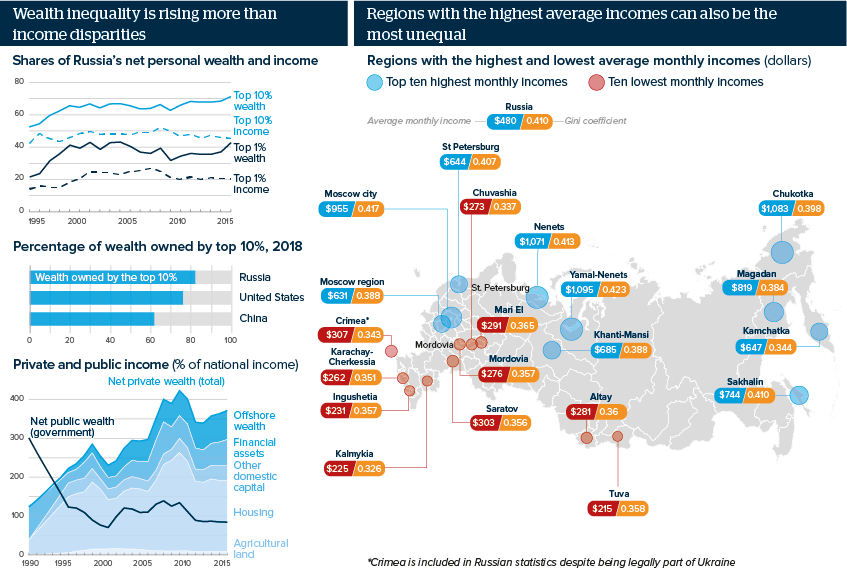Inequality will be more salient as Russians feel pinch
Russia’s richest own much of the wealth while the majority are only just getting by
Source: Russian finance ministry; Rosstat; Credit Suisse Global Wealth Report 2018; RBC; World Inequality Database
Outlook
By any measure, Russia has become a much less equal society since 1991. While 10% of the population own 82% of all household wealth, 41% had incomes of 300 dollars or less in 2017, with 13% falling below the official subsistence level.
Although the highest average incomes are earned in oil and gas regions and in Moscow and St. Petersburg, these places are often more unequal than others, reflected by higher Gini coefficient numbers. Thus, Moscow and St. Petersburg are home to the wealthiest residents but also many of the poorest. Russia differs from some other societies in that the rich are widely perceived to have acquired their wealth unlawfully.
Impacts
- Tax increases and fuel hikes will hit middle-income and poor Russians as real disposable income is set to fall for yet another year.
- Higher living costs will intensify the sense that a wealthy ruling elite is squeezing voters for cash.
- The falling popularity of President Vladimir Putin and his government suggests Russians resent their treatment.
- Past protests about corruption, road tax and waste disposal show people are prepared to mobilise around economic hardship and unfairness.
See also
- Russian income slide will hurt poorest borrowers - Jun 24, 2020
- Russian state planning will weigh on regional finances - Jan 9, 2020
- Consumer debt risk becomes Russian political dilemma - Aug 21, 2019
- Foreign retailers respond to Russians' modest spending - Jun 18, 2019
- Russia's 2018 GDP mini-surge will not be repeated - Feb 26, 2019
- Russia’s capital amnesty scheme gets another year - Feb 7, 2019
- Russian budget plans for both resilience and growth - Nov 19, 2018
- More graphic analysis
